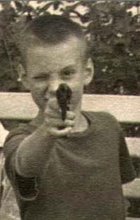
heres a colored version of page 4.
this may not be the finale version.
ill post with text tonight. but for now....
::::::::::::::::::::::::::::::::::::::::::::::::::::::::::::::::::::::::::::::::::::::::
Throughout the novel, Palahniuk uses the narrator and Tyler to comment on how people in modern society try to find meaning in their lives through commercial culture. Several lines in the novel make reference to this lifestyle as meaningless. Usually Palahniuk delivers this through overt methods, but there are also some allegorical references as well; for instance, the narrator, upon looking at the contents of his refrigerator, notices he has "a house full of condiments and no food."[25] This also denotes that modern society and consumerism has no substance, but is merely based upon making things appear to have substance; i.e condiments are not a main food source, they merely add flavor to existing food. Indulging in consumerism (shopping, like from the IKEA book) doesn't add any real substance to life, it only adds an appearance (like a condiment).
Additionally, much of the novel comments on how many men in modern society have found dissatisfaction with the state of masculinity as it currently exists. The characters of the novel lament the fact that many of them were raised by their mothers because their fathers either abandoned their family or divorced their mothers. As a result, they see themselves as being "a generation of men raised by women,"[26] being without a male role model in their lives to help shape their masculinity. This ties in with the anti-consumer culture theme, as the men in the novel see their "IKEA nesting instinct" as resulting from the feminization of men in a matriarchal culture.
Maryville University of St. Louis professor Jesse Kavadlo, in an issue of the literary journal Stirrings Still, claimed that the narrator's opposition to emasculation is a form of projection, and that the problem that he fights is himself.[27] He also claims that Palahniuk uses existentialism in the novel to conceal subtexts of feminism and romance in order to convey these concepts in a novel that is mainly aimed at a male audience.[28]
Palahniuk himself gives a much simpler assertion about the theme of the novel, stating "all my books are about a lonely person looking for some way to connect with other people."[29]
Paul Kennett claims that, because the narrator's fights with Tyler are fights with himself, and because he fights himself in front of his boss at the hotel, the narrator is using the fights as a way of asserting himself as his own boss. He argues that these fights are a representation of the struggle of the proletarian at the hands of a higher capitalist power, and by asserting himself as capable of having the same power he thus becomes his own master. Later, when fight club is formed, the participants are all dressed and groomed similarly, thus allowing them to symbolically fight themselves at the club and gain the same power.[30]
Afterwards, Kennett says, Tyler becomes nostalgic for the patriarchical power controlling him, and creates Project Mayhem to achieve this. Through this proto-fascist power structure, the narrator seeks to learn "what, or rather, who, he might have been under a firm patriarchy."[31] Through his position as leader of Project Mayhem, Tyler uses his power to become a "God/Father" to the "space monkeys", who are the other members of Project Mayhem (although by the end of the novel his words hold more power than he does, as is evident in the space monkeys' threat to castrate the narrator when he contradicts Tyler's rule). According to Kennett, this creates a paradox in that Tyler pushes the idea that men who wish to be free from a controlling father-figure are only self-actualized once they have children and become a father themselves.[32] This new structure is, however, ended by the narrator's elimination of Tyler, allowing him to decide for himself how to determine his freedom.
from the fight club novel wiki page.
http://en.wikipedia.org/wiki/Fight_Club
ill post more fight club stories and quotes ect as this goes on.
rock,
bones






2 comments:
dude.. you are the shit.. any fight club art you have, lemme know i'd like to display it on my blog.. as you'll see i kinda have a lil theme....
can't wait for the graphic novel to be done... excellent fucking work...hopefully it'll get published and i can buy me a copy... peace
Hey Bones,
Congrats on the pick of this of most amazing of stories. Fight Club is the only film I have ever finished watching and then gone right back and bought another ticket for the next session; it captures the themes and feel of the just as brilliant book beautifully.
Can't wait to see it mate.
Good Luck...and you have yourself a fanboy. ;^)
Cheers,
Paul Bedford (The List).
Post a Comment